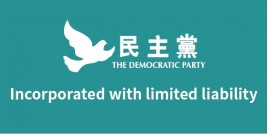“Human Rights Situation in Hong Kong”
Submission of the Democratic Party of Hong Kong to the United Nation Human Rights Council
regarding China Universal Periodic Review
September, 2018
Hong Kong (HK)’s human rights situation has been a greater cause for concern in recent years, with threats to the ‘One Country, Two Systems’ promised to HK through the Sino-British Joint Declaration becoming more apparent on a number of aspects. The Democratic Party believes this is a very worrying trend and would like to highlight our major concerns, and hopes the administration would adopt the recommendations as follows:
Re-interpretation of Basic Law
- The Human Rights Committee had expressed its concern before that ‘a mechanism of binding constitutional interpretation by a non-judicial body [might] weaken and undermine the rule of law and the independence of judiciary’ (CCPR/C/CHN-HKG/CO/3, para. 6), and the latest interpretation by the Standing Committee of the National People’s Congress (NPCSC) makes it a stronger cause for concern. The Basic Law details the steps that should be taken in order for NPCSC to invoke the power of interpretation, yet the latest interpretation in 2016 was, again, not given upon request by HK’s courts. This time it was given before the end of a judicial process.
- The case in focus is the judicial review the HK Government brought on to challenge the validity of two elected legislators’ seats, following their ways of swearing-in which were generally considered offensive. After relevant cases had been argued before the Court and were awaiting determination, the NPCSC made the interpretation to the surprise of many. The fact that NPCSC’s interpretation was made before the judge’s verdict, was described as ‘most unfortunate’ by HK’s Bar Association, and they considered the act as one that had undermined the ‘authority and independence of the judiciary’.[1]
- The Democratic Party echoes the same sentiment and believes the pre-emptive interpretation made by the NPCSC was a lamentable abuse of its power and a direct infringement of HK’s internal judicial proceedings. The independence of the judiciary is the bedrock of HK people’s freedom and prosperity, and given the fact that interpretations by the NPCSC have retrospective effect, it has subsequently led to six cases of disqualification of elected members of the Legislative Council (LegCo) which was unprecedented. NPCSC’s use of their interpretation power also worries some veteran judges who were interviewed anonymously, who expressed fears that interpretations could ‘effectively mean Beijing is telling them what to do’ and limit their authority.[2] The Party believes the administration has a duty to ensure the proper functioning of the judiciary in HK in accordance with the International Covenant on Civil and Political Rights (ICCPR), and strongly urges the government to take a proactive stance in defending the independence of the judiciary.
Pre-screening of Candidates
- Starting from the LegCo elections in 2016, candidates were asked to sign a confirmation form declaring they will uphold the Basic Law and pledge allegiance to HK. As a result, some candidates were barred from running the election as their nominations were deemed ‘invalid’ based on their political affiliations and past comments on HK independence, even after they signed the confirmation form. The confirmation form system is an added and unnecessary requirement without any legal basis, and only serves to pre-screen candidates based on their political views, in contravention of Article 25 of the ICCPR, and the freedom of expression promised in the Basic Law.
- Moreover, the Central People’s Government Liaison Office in Macau and individual figures close to Beijing have commented that candidates who call for the end of one-party rule in Beijing will not be able to run for future LegCo elections, leading to concerns that HK may follow suit. The Democratic Party demands the government to remove pre-screening measures immediately so that those who wish to be elected at elections could do so freely, and respect the freedom of expression as stated in the Basic Law.
Media and academic freedom
- Arrests, assaults and harassment of journalists and academics in HK have been reported before, but more incidents of a similar and even more serious nature have been reported in recent years. Five booksellers who sell books critical of Chinese government leaders in HK disappeared while they were in the Mainland and Thailand in 2015, the fifth one being Lee Bo who was last seen in HK. Lee’s disappearance in HK had led to fears that he was abducted back to the Mainland by Chinese officials, as there was no official record of him leaving HK but he later resurfaced in state media. Bookseller Lam Wing-kee, who was last seen in the Mainland, detailed his kidnapping by Chinese officials in relation to his role in the bookstore when he was back in HK. He was escorted back to HK (although he later escaped) under the condition that he would collect evidence for the Chinese authorities from the bookstore. The ramifications of these cross-border law enforcement incidents would be in breach of the Sino-British Joint Declaration on HK and the Basic Law, which stipulate clearly that Mainland Chinese laws will not be applied in HK and Mainland officials cannot come to HK to enforce Mainland laws. Not only did the incident spark fears over personal safety of HK people, it also led to concerns of press freedom in HK.
- The HK Journalistic Association’s (HKJA) Annual Report 2017 has relevant statistics to better depict HK’s media scene and the extent of the freedom it enjoys. As stated in the report, a survey carried out by them and the University of HK revealed that around 30 percent of journalist respondents practiced self-censorship, and that more than 70 percent thought overall press freedom had deteriorated. As of 2017, 8 out of 26 mainstream media outlets are under Chinese control or have Chinese stakes, and HKJA worries that this trend is not showing any signs of stoppage.[3]
- As an increasing number of pro-Beijing figures were appointed to Councils of universities, academics who have voiced out in support for student protestors, or have criticized Beijing and the HK government in the past, have seen their contracts terminated and promotions to senior administrative positions rejected. The most notable case is the former Dean of the Faculty of Law of the University of Hong Kong, who had his promotion as the University’s Pro-Vice Chancellor rejected, in a move that was widely regarded as politically motivated due to his open criticisms of the Chinese government in the past.
- Media and academic freedom stems from the freedom of expression every HK person should enjoy as enshrined in Article 19 of the ICCPR and Article 27 of the Basic Law. The Democratic Party calls for the administration to take cases that threaten media and academic freedom, freedom of expression and personal safety seriously. Thorough investigations should be conducted and those responsible should be prosecuted in cases where crimes have been committed. The administration should also fulfill its responsibility of creating an environment where freedom of expression, press and academia are encouraged and not suppressed.
Co-location Arrangement
- The co-location arrangement approved by the NPCSC entails allowing the Mainland to exercise full jurisdiction on operating trains, platforms and border clearance zone within West Kowloon Station, Hong Kong. This clearly goes against Article 18 of the Basic Law, which states that Mainland laws shall not be applied in HK except for those listed in Annex III of the Basic Law.
- As the co-location arrangement entails the reduction in size of HK territory and the introduction of Mainland laws, this has led to concerns that this will set a precedent with a very detrimental effect. The Democratic Party demands the administration to propose a replacement arrangement that goes in accordance with the Basic Law.
Delay of Realizing Universal and Equal Suffrage
- The head of HK’s Executive Authorities, the Chief Executive (CE), and the LegCo, are still not directly elected by universal and equal suffrage, in contravention of article 25(b) of the ICCPR. The current CE, Mrs. Carrie Lam, was elected by a 1200-member committee, while the majority of HK people were not able to vote at all.
- According to NPCSC’s resolution in 2007, HK’s Chief Executive may be elected by universal suffrage in 2017, and the subsequent LegCo election may follow suit.[4] However, the framework for the universal suffrage set out in NPCSC’s decision in 2014 failed to meet the international standards as set out in ICCPR, to the great disappointment of HK people. The mechanisms and requirements the NPCSC laid down were deemed too hard for candidates not backed by Beijing to run in the election, which goes against the principles enshrined in article 25(b) of the ICCPR.
- On the other hand, half of the LegCo is still made up of functional constituencies whose original purpose was to reflect respective sectors’ interests. However, the system has been widely criticized as unjust as these sectors have a limited number of voters, have their own vested interests and are generally pro-Beijing. The legitimacy of some of the successful candidates from the functional constituencies has been contested. In the LegCo election in 2016, 12 of the 35 functional constituency seats were filled in automatically as there was only 1 candidate. Due to the defects of the current electoral system, even though the pan-democrats have around 60% of HK voters’ support, they only hold a mere 30% of the seats in the LegCo, which fails to reflect the real level of representation in the LegCo.
- The Democratic Party calls for the immediate rectification to the existent electoral system to ensure future elections can be carried out in conformity with the ICCPR. Universal and equal suffrage for the Chief Executive elections in 2022 and for the LegCo elections in 2020 should be made a top priority for the current administration, so that HK people could enjoy universal and equal suffrage as outlined in the ICCPR and the Basic Law.
[1] Hong Kong Bar Association Statement on 7th November, 2016 http://www.hkba.org/sites/default/files/20161107%20-%20Statement%20re%20NPCSC%20interpretration%20BL104%20%28Eng%20Version-web%29.pdf
[2] Reuters Article on 15th March, 2018 https://www.reuters.com/article/us-hongkong-law/hong-kongs-judges-voice-fears-over-china-influence-in-judiciary-idUSKCN1GR0LD?il=0
[3] The Hong Kong Journalists Association 2017 Annual Report http://www.hkja.org.hk/site/Host/hkja/UserFiles/file/Annual_report_2017.pdf




